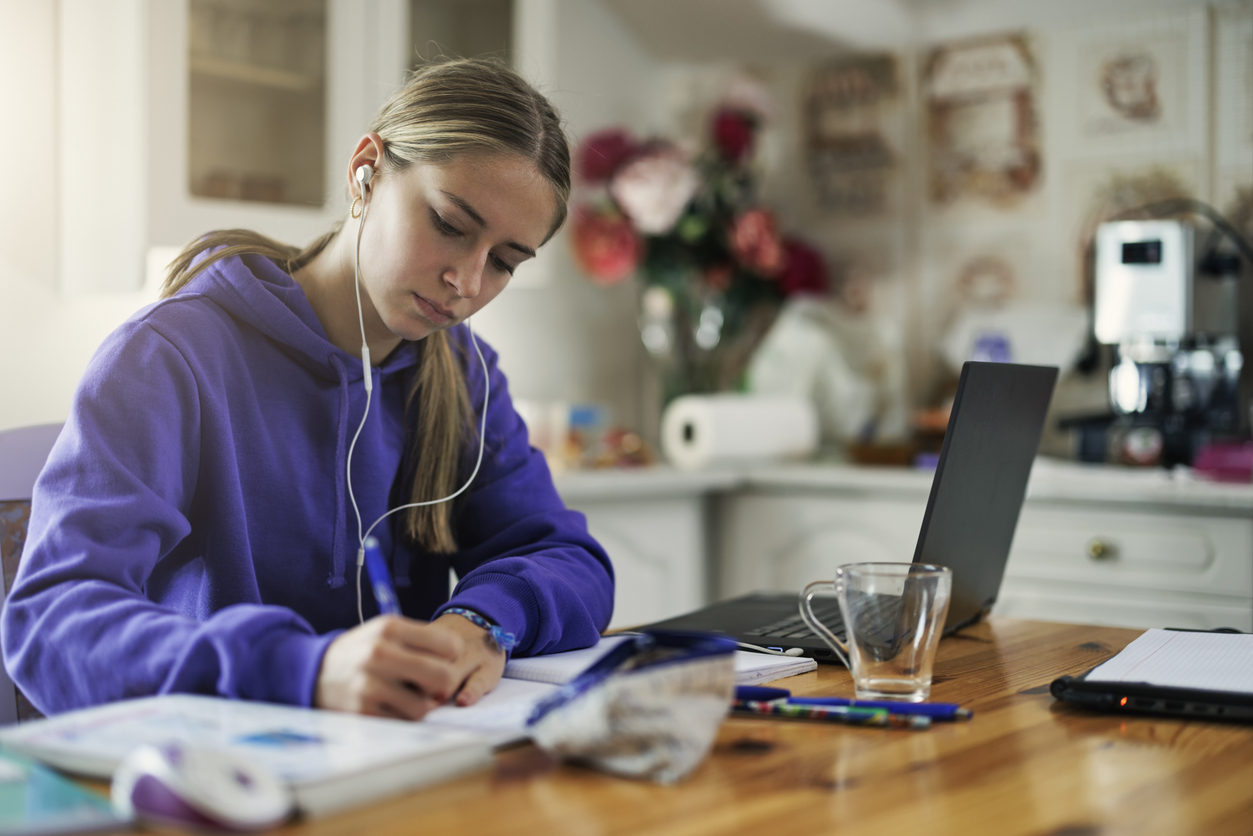Parents play a central role in encouraging self care for students by promoting balance and a healthy approach to learning. When parents support habits that protect wellbeing, students are more likely to manage stress effectively and stay focused.
Encouraging self care helps young people recognise their limits and understand that rest and reflection are part of successful learning. This approach can strengthen confidence and motivation. By guiding students to prioritise their mental and physical health, parents help build sustainable study routines.
Follow these steps to create a supportive home environment for your student.
Introduce a Weekly Screen-Free Hour
Rather than telling students to reduce screen time, parents can model it. A weekly offline hour where everyone unplugs at the same time can help normalise rest. The focus is on being together in a calm, present way. Sitting quietly, talking or simply enjoying the quiet helps reduce overstimulation. This gentle family ritual teaches that stepping away from constant noise is a valid and healthy choice, supporting clearer thinking and emotional steadiness.
Create a “Pause Corner” at Home
Set aside a small space in the house designed purely for slowing down. It does not need to be elaborate. A cushion, a soft lamp and maybe a quiet activity like gentle stretching or sketching are enough. The idea is to offer a place that symbolically signals rest. When life feels overwhelming, students can go there without needing permission or explanation. This encourages them to recognise when they need a break and to act on it.
Celebrate Rest as an Achievement
Parents can shift the household culture away from praising constant busyness. Acknowledging rest as something valuable teaches that slowing down is part of being successful, not a sign of laziness. When students see rest treated with respect, they become more likely to take it without guilt. Parents can say things like “I’m glad you took time to recharge,” reinforcing that looking after oneself is an accomplishment. This helps students form a healthier view of productivity and self worth.
Encourage Mindful Breaks
Guide your student to take short, intentional breaks during study or homework, focusing on mindfulness rather than scrolling or multitasking. Even a few minutes of deep breathing, stretching, or simply noticing surroundings can reduce stress and improve concentration. By modelling calm, present behaviour and reminding students to pause, parents help them see these moments as valuable rather than optional. Regular mindful breaks teach students to reset their minds and approach challenges with greater clarity.
Promote Positive Social Connections
Maintaining healthy relationships with friends, family, and mentors is vital for wellbeing. Encourage meaningful conversation, shared activities, or even casual check-ins helps students feel supported and understood. Healthy social ties reduce feelings of isolation and give students a network to lean on during stressful periods, contributing to long-term self-care habits.
How Tutor Doctor Encourages Self-Care for Students
Tutor Doctor supports student wellbeing by embedding self-care into every learning plan. Strategies include balancing work with regular breaks, setting realistic goals, and creating structured routines that prevent burnout.
We place emphasis on celebrating small successes and encouraging reflection, ensuring students feel capable and motivated. By prioritising mental and physical health alongside academic progress, Tutor Doctor nurtures resilience and sustainable learning habits.
Contact us for a free consultation.




